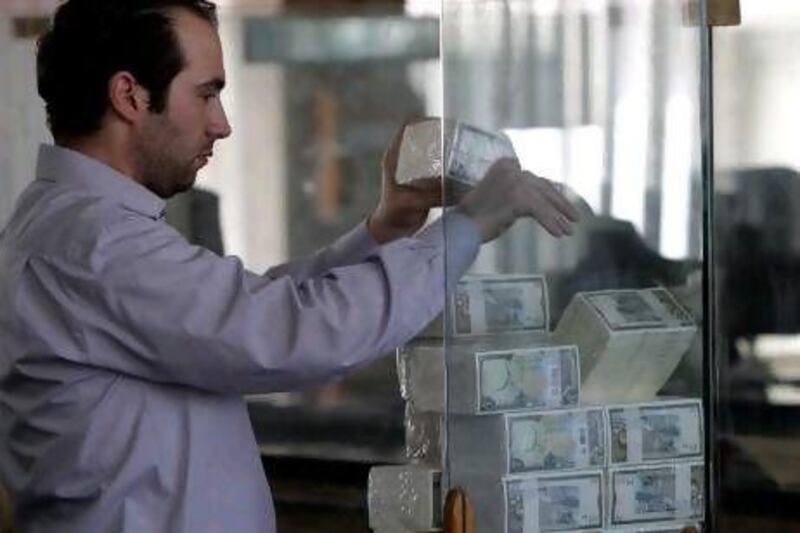In a letter posted on his blog to Joshua Landis, a Syria analyst based in the US, a resident of Aleppo describes the decline in living standards in Syria's commercial capital city.
"The Syrian pound has fallen to 83 to the dollar," he writes. "This means that the net worth of every Syrian has fallen by over 70 per cent since the beginning of the uprising. People do not have enough to eat. More than half the country is living on 2 dollars a day or less. Hunger and fear are spreading."
Assuming he is not exaggerating (Mr Landis is, if anything, known for being mildly sympathetic towards the Syrian president Bashar Al Assad, so the letter is unlikely to be carefully inserted propaganda), it is one of the most revealing dispatches from a city that had been relatively immune to Syria's version of the Arab Spring.
There may be scant sympathy for the Aleppines, who for the past year have minded their own business while their fellow Syrians have been gunned down by the dozen, but to see in purely binary terms is to ignore the frightful lack of choice many Syrians face. The revolt has placed a huge strain on the Syrian private sector, physiologically as well as financially and economically.
Last May, I was in London and ran into a prominent Syrian businessman, a Christian and one whom the world might assume was hoping the whole mess would just go away.
What was his take on the situation? He exhaled nervously and, almost conspiratorially, took me to one side. "I am torn," he said. "My heart is with the people but my wallet is with the regime. What can I do?"
Since then, I have met more Syrians, mostly wealthy Christians from Damascus, who despite their outward cosmopolitanism and education have voiced unambiguous support for a regime that for decades has shown it will brook no dissent.
They trot out the weary line that Mr Al Assad is the only man who can stop what they see as the inevitable tide of Sunni fundamentalism that is poised to sweep across the region. Privately, a few will admit the regime's fundamental DNA is not to their liking but, as the old cliché goes, we live in a tough neighbourhood.
There are two conclusions to draw about the Syrian private sector.
The first is the one we might all jump to, that it is an elite minority that has become wealthy on the back of the regime, that deep down one senses it is not all about what will happen après le déluge. Change would simply be loaded with too much uncertainty and if that means 10,000 people have to die, then so be it. Like we said, tough neighbourhood.
I met the Syrian businessman again last week. The situation was, he declared over lunch in a Beirut restaurant, a terrible one. But again he asked the question: "what can I do?
And the truth is he and his fellow merchants, manufacturers and traders can do nothing. The private sector genuinely has its hands tied.
"He's right," said a Lebanese banker. "What can he do? Tell Bashar to stop the killing or else? Or what? The next day the business will be burnt down and the owner thrown in jail."
And so the bourgeoisie is doing the next best thing and heading to Beirut, where they are buying apartments - there are plenty on the market after all - then putting their kids in Lebanese schools and hoping that Lebanese banks will give them the letters of credit they need to carry on doing business.
"For the time being, it's over, the banker added.
"The Lebanese banks are doing very little business there at the moment because the merchant class is doing very little business," he said.
"I suppose it's a blessing that we never really did much there in the first place."
Michael Karam is an associate editor-in-chief of Executive, the Lebanese regional business magazine





